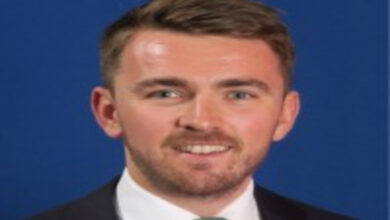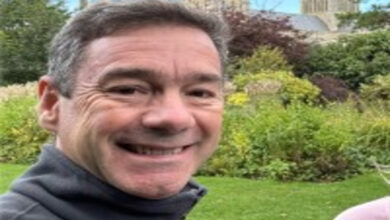Elizabeth Holley: Pioneering Economic and Mining Geology for a Sustainable Future
How an Esteemed Geologist is Shaping Research, Policy, and Education in Modern Mining

Elizabeth Holley is an Associate Professor of Mining Engineering at the Colorado School of Mines and a recognized leader in economic and mining geology. With more than two decades of experience spanning global fieldwork, industry project management, academic research, and teaching, she has made significant contributions to understanding ore deposits, sustainable mining practices, and the environmental and social impacts of mineral development. Her career blends technical expertise with a vision for responsible resource use, positioning her as a key voice in shaping the future of mining.
Early Life and Educational Background
Elizabeth Holley’s academic journey reflects both intellectual curiosity and a global outlook. She earned her Bachelor of Arts in Geology from Pomona College, where she first cultivated her passion for the earth sciences. Building on this foundation, she pursued a Master’s degree in Geochemistry at the University of Otago in New Zealand. There, her work emphasized the environmental consequences of mining activities, sparking a lifelong interest in sustainable practices.
She later earned her Ph.D. in Geology from the Colorado School of Mines, focusing on economic geology. This academic progression, across institutions and continents, not only sharpened her scientific expertise but also gave her a unique perspective on the intersection of geology, mining engineering, and sustainability.
Professional Journey: From Fieldwork to Academia
Before entering academia, Elizabeth Holley worked extensively in industry. Her early career took her across five continents, where she managed mining exploration projects and contributed to important discoveries, including the White Gold deposit in Canada’s Yukon region. These experiences deepened her understanding of both the technical challenges and real-world applications of mining geology.
Her transition to academia allowed her to merge practical industry insights with scientific inquiry. At the Colorado School of Mines, she became known not only for her research but also for her teaching and mentorship, inspiring the next generation of mining engineers and geologists.
Research Contributions and Accomplishments
Holley leads the Mining Geology Research Group, a collaborative effort bridging geology, engineering, environmental science, and social policy. Her research covers diverse but interconnected themes:
Ore Deposit Genesis: Investigating the formation of Carlin-type gold deposits, porphyry systems, and epithermal deposits.
Environmental Geochemistry: Studying how sulfide and sulfate minerals behave in mining environments, particularly in heap leach and waste settings.
Sustainable Mining Practices: Designing models that integrate geology with stakeholder concerns and environmental stewardship.
Innovative STEM Education: Exploring new methods of teaching geology and mining engineering to make the field more inclusive and impactful.
Her projects have received funding from major organizations, including the National Science Foundation (NSF), the U.S. Geological Survey (USGS), and mining industry leaders. Notably, she was awarded the prestigious NSF CAREER Award for her groundbreaking studies on the origins of gold deposits in Nevada.
Leadership in Professional Development
Beyond research, Elizabeth Holley has dedicated herself to professional training and knowledge dissemination. As the Education and Training Program Coordinator for the Society of Economic Geologists (SEG), she has helped organize more than 175 professional short courses and field trips worldwide. These programs provide crucial training for industry professionals and graduate students, ensuring the field of mining geology remains dynamic and forward-looking.
Her role as a distinguished lecturer within SEG further underscores her leadership in the global geology community. She has traveled widely, delivering lectures and workshops that emphasize responsible exploration, mineral discovery, and environmental accountability.
Teaching and Mentorship
At the Colorado School of Mines, Holley teaches courses that combine technical rigor with real-world application. Subjects include Mining Engineering Design, Graduate Mining Geology, and advanced seminars on mining-related topics.
Her teaching philosophy extends beyond transferring knowledge—she emphasizes critical thinking, innovation, and ethics. By preparing students to not only excel technically but also to understand the broader social and environmental context of mining, she is helping shape a workforce capable of addressing the industry’s most pressing challenges.
Advocacy and Policy Engagement
Holley’s expertise extends into public policy, where she plays an influential role in shaping discussions about the future of mining in the United States. In 2024, she testified before the U.S. House Select Committee on the Chinese Communist Party’s Critical Minerals Policy Working Group, where she highlighted the urgent need to build a sustainable and interdisciplinary mining workforce.
She has also delivered high-profile lectures on responsible critical minerals, emphasizing the environmental and societal responsibilities that come with the global shift toward renewable energy and electrification. Her policy work bridges the gap between academic research, industry needs, and government priorities.
Global Fieldwork and Industry Collaborations
Holley’s career has taken her far beyond the classroom and laboratory. Her fieldwork on five continents includes collaborations with mining companies, governments, and research organizations. These experiences have given her firsthand insight into the complex realities of mineral exploration and extraction.
Industry partnerships have played a key role in her projects, with support from organizations such as Newmont Mining, Coeur Mining, and international foundations. By working at the intersection of academia and industry, Holley ensures that her research has both scientific depth and practical application.
Recognition and Awards
Throughout her career, Elizabeth Holley has received numerous honors that reflect her outstanding contributions:
NSF CAREER Award for groundbreaking research on Carlin-type gold deposits.
Recognition as a distinguished lecturer for the Society of Economic Geologists.
Multiple research grants from NSF, USGS, and industry partners.
Appointed as Site Director for the NSF Industry–University Cooperative Research Center for Advanced Subsurface Earth Resource Modeling (CASERM).
These awards underscore her reputation as both a scientist and a thought leader in mining geology.
The Human Side of Science
What sets Elizabeth Holley apart is not just her technical expertise, but her commitment to people and communities. Her projects often address the social license to operate, exploring how mining companies can earn public trust through corporate responsibility and environmental stewardship.
She also works on capacity-building projects in developing countries, empowering local communities to engage with mining projects in ways that protect their environment and promote long-term sustainability.
Shaping the Future of Mining Geology
As global demand for critical minerals grows—driven by renewable energy, electric vehicles, and digital technology—Elizabeth Holley’s work has never been more relevant. She advocates for mining practices that balance economic necessity with ecological responsibility, ensuring that resource development supports rather than undermines global sustainability goals.
By blending geological science, environmental awareness, and social responsibility, she represents the future of mining geology: a discipline deeply rooted in science but oriented toward ethical and sustainable practices.
Conclusion
Elizabeth Holley’s career is a testament to what happens when scientific expertise is paired with vision, compassion, and leadership. From her early days as a field geologist to her current role as a professor, researcher, and policy influencer, she has consistently advanced the boundaries of economic and mining geology.
Her contributions to research, education, industry, and public policy make her not just a respected academic, but a trailblazer in sustainable mining. As the world continues to grapple with the challenge of responsibly sourcing critical minerals, her voice will remain central in guiding both science and society toward a more sustainable resource future.



